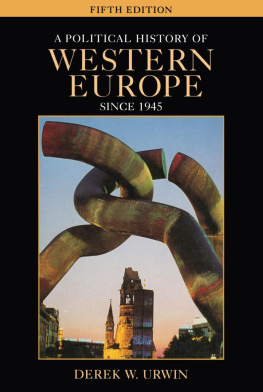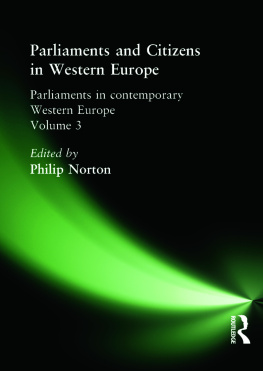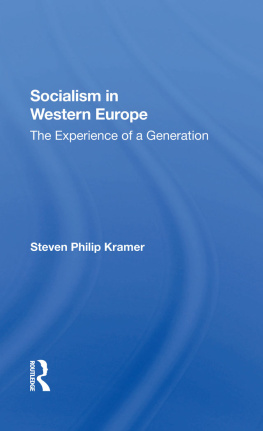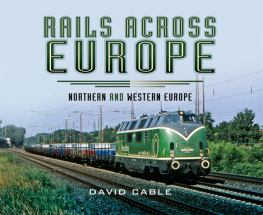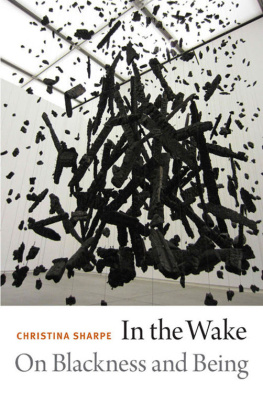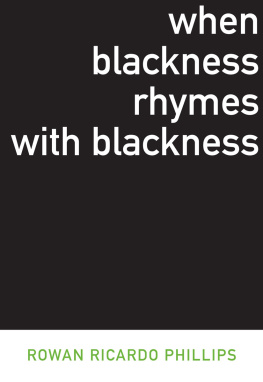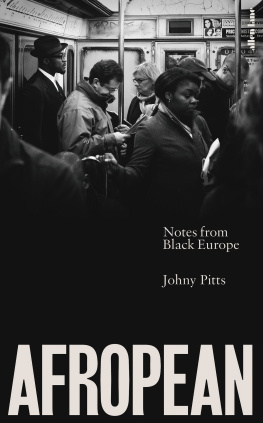Blackness in Western Europe

Albrecht Drer, Portrait of Katherina, 20 years old. Antwerp, 1521. Gabinetto Disegni e Stampe degli Uffizi, Florence
On the cover front cover: Cornelis Troost, Portrait study of a young black servant or musician. Amsterdam, 1747. Rijksmuseum, Amsterdam
On the back cover: Govert Flinck, Head of a Black Man (1640) Museu Nacional dArt de Catalunya (MNAC), Barcelona (Cambo Bequest).
Photograph: Calveras/Mrida/Sagrist
First published 2014 by Transaction Publishers
Published 2017 by Routledge
2 Park Square, Milton Park, Abingdon, Oxon OX14 4RN
711 Third Avenue, New York, NY 10017, USA
Routledge is an imprint of the Taylor & Francis Group, an informa business
Copyright 2014 by Taylor & Francis
All rights reserved. No part of this book may be reprinted or reproduced or utilised in any form or by any electronic, mechanical, or other means, now known or hereafter invented, including photocopying and recording, or in any information storage or retrieval system, without permission in writing from the publishers.
Notice:
Product or corporate names may be trademarks or registered trademarks, and are used only for identification and explanation without intent to infringe.
Library of Congress Catalog Number: 2013039625
Library of Congress Cataloging-in-Publication Data
Hondius, Dienke.
Blackness in Western Europe : racial patterns of paternalism and
exclusion / Dienke Hondius.
pages305.8906 cm.
1. BlacksEurope, WesternHistory. 2. BlacksEurope,
WesternSocial conditions 3. BlacksRace identityEurope,
Western. 4. RacismEurope, WesternHistory. 5. Europe,
WesternRace relationsHistory. I. Title.
D1056.2.B55H66 2014
305.89604dc23
2013039625
ISBN 13: 978-1-4128-5367-5 (hbk)
European scholars stayed away from the history of race and racism for decades after the Holocaust: significantly, race was mentioned only to declare it irrelevant and dangerous at the same time. The very word race was avoided in most European nations. The research for this book convinced me that race is a relevant and powerful factor to address. This study aims to connect the fields of historical analysis and critical race studies by presenting some of the long historical trends in how European societies have dealt with race as visible difference. In large parts of Europe, recent immigrants from North Africa and the Mediterranean, the Middle East, the Caribbean, as well as from Sub-Saharan Africa and Asia experience being lumped together casually as merely others in multicultural societies. It is unusual to speak explicitly about color, about blackness or whiteness, about the relevance of race, about what it means to be dark, darker, or lighter skinned in cities from Scandinavia to Spain, in rural areas and villages from Belgium to the Ukraine. This book puts that visible aspect of race back on the table and on the research agenda because Europe has a long history of race to address. There are vast areas of unexplored archives in a European present that is reluctant to declare racial issues relevant for historical research.
Social scientists and philosophers inspired me to look deeper at what appeared to be missing: the European history of race relations. What happened at home in the European nations and cities who were involved in building and maintaining overseas enterprises, companies, colonies, and empires? Racial awareness is a puzzling phenomenon for many people. Sooner or later, we find out, often through remarks or reactions from others, that we apparently are considered to fit in a racial category. The philosopher Emmanuel Chukwudi Eze describes this as learning a new language: the processes of learning the reality and the languages of race and racism. Eze grew up in Nigeria and remembers: It wasnt until I came to the United States and England that Once in the United Kingdom and later the United States, race soon became Ezes main research topic.
The process of learning racial awareness can be observed similarly in North West Europe, where postcolonial and labor migration has changed, in some places faster than others, the face of lilywhite villages and towns. I grew up in the Netherlands in a white Protestant family in a village near the sea, far away from the capital. Among the building blocks of my own racial awareness was, in retrospect, the presence there of postcolonial Moluccan families from newly independent Indonesia. After moving to study in Amsterdam at the end of the 1970s, more diversity began to enter my daily life. A wonderful trip to Suriname with my boyfriend to visit his parents, who lived there temporarily, was a powerful eye-opener. I noticed my whiteness, particularly when Afro-Surinamese children waved at me. Back in Amsterdam, issues of ethnicity, race, and anti-discrimination soon became my focus in activist groups, although these groups were virtually white and unconnected with the new Afro-Dutch communities settling in the Netherlands. At the university too, very few black students or faculty could be found. The vibrant Amsterdam international music scene and trips to London, Brussels, Paris, Lisbon, and other European cities made up for thatin retrospect the atmosphere around multiculture was open and positive. I was lucky to make new friends here and there and to get to know a large Afro-Surinamese Dutch family through my new boyfriends brother. Over the years, family occasions provided opportunities for conversations with my sister-in-law Mabel and her family and I am grateful to them for sharing their ideas with me about what it means to live in the Netherlands as an Afro-Surinamese Dutch family.
During this research project, there were numerous occasions where I was reminded of the strong impact of visible difference. There are so many situations and social groups where black people are the only one or one of the very few. One and a half century after the emancipation from enslavement, half a century after decolonization and the liberation from Nazi Germany, and two decades after the formal end of Apartheid in South Africa, religious, cultural, and visible difference
Notes
. Emmanuel Chukwudi Eze, Achieving Our Humanity. The Idea of the Postracial Future (New York and London: Routledge, 2001), 216, 219. See also Emmanuel Chukwudi Eze, African Philosophy, An Anthology (Wiley Blackwell, 1998), Universality resides in this decision to recognize and accept the reciprocal relativism of different cultures, once the colonial status is irreversibly excluded. (p. 310).
. James Baldwin, The White Mans Guilt. Ebony , August 1965 (4748). Also: James Baldwin, Unnameable Objects, Unspeakable Crimes. In: idem, The White Problem in America . Chicago, Johnson, 1966.
The degraded man-child stereotype was an ideological imperative of all systems of slavery.
(Orlando Patterson, 1982)
Denigrate ( latin: denigrare) : to blacken someone, in particular ones reputation; to defame, to treat as worthless, to belittle, to degrade, to besmirch.
The reason for assuming the Negroes and Whites to be fundamental races is self-evident.




